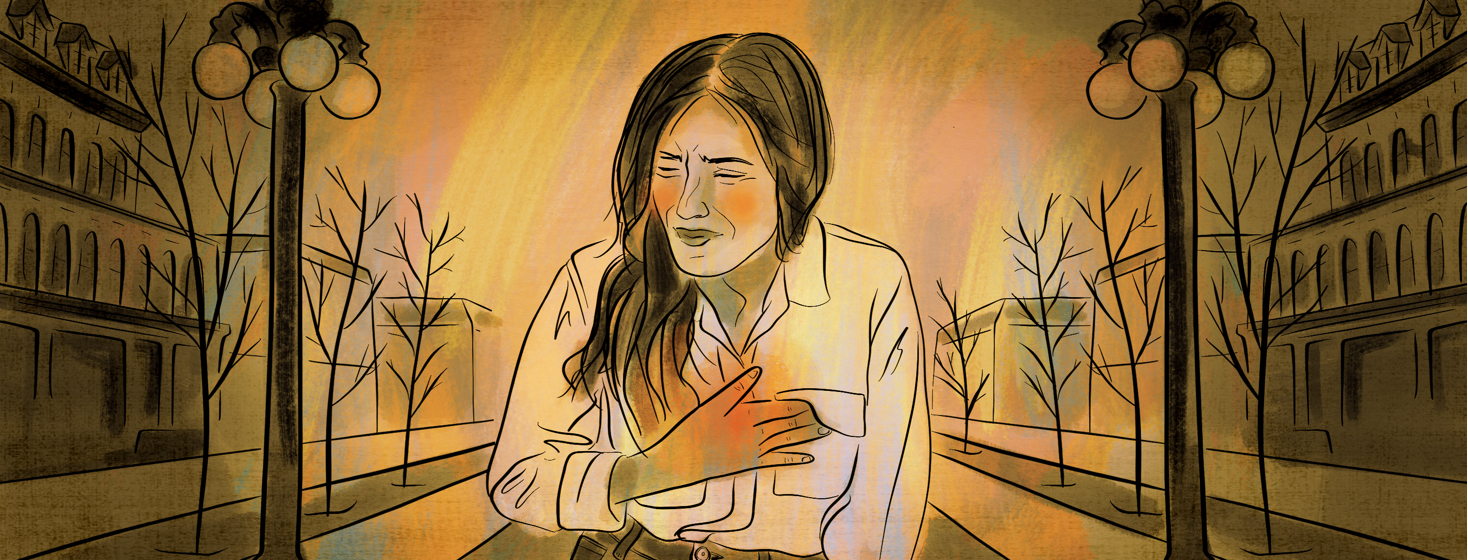The Pain in My Chest – What Is that?
My chest hurts. I can barely breathe. I feel like I am having a heart attack. How many have had this conversation with themselves? It is one of the scariest feelings not knowing what is going on with your body. You begin to think about your own mortality in those moments of pain. It can be frightening.
What is going on with this chest pain?
Sometimes you can experience serious symptoms that lead to different diagnoses that you have never heard of before. In the pain, you have to worry about feeling better and a new issue. The new issue for me, in that pain, was Tietze’s syndrome or costochondritis.
What is costochondritis?
Costochondritis is a painful condition around the ribs and the breastbone. The Mayo Clinic describes it as, “an inflammation of the cartilage that connects a rib to the breastbone or sternum." It has also been called chest wall pain.
What are the symptoms of costochondritis?
Costochondritis can feel like a heart attack. My symptoms include chest pain that can get worse with activity. Breathing deeply can make the pain worse. Tender areas develop in the area in the middle of the chest and dull to sharp pains can occur around the chest wall and radiate to the back or stomach area. Most pain is seen on the left side of the chest, according to the Mayo Clinic.
What are the causes of costochondritis?
Costochondritis doesn’t have a specific cause but there are some things that may be a cause. An injury or trauma from a fall, physical strain, or inflammatory conditions may bring on costochondritis. Studies have said there could also be a genetic predisposition or it could be caused by viral or bacterial infections.
Who is at risk for costochondritis?
The Mayo Clinic says costochondritis usually occurs more often in women and those over 40 years of age. Some athletes who participate in strenuous activity or exercise may be prone to dealing with it. Those who have conditions like rheumatoid arthritis, osteoarthritis, or ankylosing spondylitis may be more at risk.
How is costochondritis diagnosed?
From what I have read, there is no specific testing to diagnose costochondritis. A physical exam by your rheumatologist can determine a diagnosis. Your doctor will examine your chest and look for tenderness or swelling around the breastbone. Additionally, the doctor may draw blood and check your CBC (Complete Blood Count) or order a chest x-ray to see if there are other issues like pneumonia present. Finally, your doctor may take an ECG or EKG (Electrocardiogram) to rule out any heart issues and check for abnormalities.
What is the treatment for costochondritis?
The doctor may suggest different treatments to help ease the pain and inflammation. These treatments can range from local steroid injections, prescription-strength NSAIDs, or narcotics like hydrocodone for pain, according to the Mayo Clinic.
Costochondritis is not an easy condition to deal with. Having 3 steroid shots in my chest definitely wasn’t what I was expecting. Above all, it’s important, if you feel any severe symptoms like shortness of breath, sharp pains, or nausea that you immediately seek medical assistance. It could be costochondritis, but it could also be something more serious.
In conclusion, be sure to stay aware of how your body is feeling and don’t ignore symptoms. Always tell your doctor what’s going on in your body. You don’t have to live in fear of the unknown.
Have you experienced costochondritis before? What were your symptoms and how were you treated? Let me know in the comments.

Join the conversation